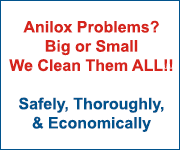Label PRomotion | Too Little, Too Much 'Sticktoitiveness' Sully Label Appeal
- Published: January 10, 2018, By Mark Lusky
In addition to preventing a negative experience, addressing adhesives can provide sales opportunities.
 It started with a bow that wouldn’t stick to a holiday gift. You can have the most attractive and attention-getting product label in the world, but if its “sticktoitiveness” is overkilling or underperforming, the label’s appeal declines rapidly.
It started with a bow that wouldn’t stick to a holiday gift. You can have the most attractive and attention-getting product label in the world, but if its “sticktoitiveness” is overkilling or underperforming, the label’s appeal declines rapidly.
Don’t underestimate how damaging this often-overlooked issue can be to reputation or sales. An analogy to another industry helps make the point. Remember when the power went out during Super Bowl 47 in New Orleans between San Francisco and Baltimore? The culprit was said to be “interconnection” equipment bringing power into the stadium, involving Switchgears, defined as “the combination of electrical disconnect switches, fuses, or circuit breakers used to control, protect, and isolate electrical equipment.”
In other words, details derailed the Super Bowl—with considerable embarrassment to the city of New Orleans and the NFL in its wake. A much more devastating example was the O-rings on the Challenger shuttle—a seemingly “smaller” concern amid meticulous monitoring of just about everything else.
The point is that adhesive suitability to the challenge at hand is every bit as important as the quality and look of the label itself. Taking time to assess the correct solution is very important, and attention to detail in this important arena can earn you considerable trust and loyalty. In contrast, lack of attention can create longstanding ill will and loss of revenue.
Besides being a way to prevent a negative experience, addressing adhesives can provide additional brainstorming and sales opportunities. For example, instead of product labels that don’t come off cleanly, consider getting proactive with customers about using repositionable labels. Subject to ability to stay in place and maintain integrity with normal use, being able to re-use labels can have myriad promotional possibilities.
They can serve as redeemable coupons of sorts, with the buyer using the label to get a discount or other inducement on repeat purchases. Or, the manufacturer can conduct a contest to determine the most creative re-use of these repositionable labels, and promote it heavily via social media and other channels. They can become a “collector’s” item among aficionados who want to keep a memento without having to include the entire bottle, can, wrapper, or other container.
Or, let’s go the opposite direction—labels that need to withstand harsh outdoor conditions including moisture and sun. While the label itself needs to be durable and impervious to climatic challenges, so does the adhesive. A perfectly preserved durable and weatherproof label washing away because of inadequate adhesive can present a whole other set of challenges—including legal liability issues if it was supposed to direct, warn, or otherwise inform people of potential danger or problems.
Use the label adhesive discussion to spur thinking, reminders, or brainstorming about other label-related items that may be of importance—especially to a particular industry. Rapidly growing markets for recreational cannabis, for instance, present new and potentially intriguing challenges. First off, the industry is getting much more sophisticated in its branding. Among other considerations, this means that labels on edibles and other cannabis-related items must look professional and often high-end, depending on the marketplace. The days of homespun design and application are waning.
Then, there’s the collectability factor. Given the popularity of cannabis, there may be more demand for removable labels that buyers can keep as mementos. Or, how about peeling off labels to keep an inventory of products purchased for health monitoring purposes? These can provide an easily referenced archive of stated ingredients and the like.
Addressing “sticktoitiveness” of labels not only makes sense…but can help you make more “cents” as well.
Mark Lusky is president of Lusky Enterprises Inc., a marketing communications and content development company. Since 2008, he has worked with Lightning Labels, a Denver-based all-digital custom label printing company, as a content developer specializing in expert advice articles. Lusky presents common-sense ideas grounded in doing what’s real and right for managing and enhancing public image.













